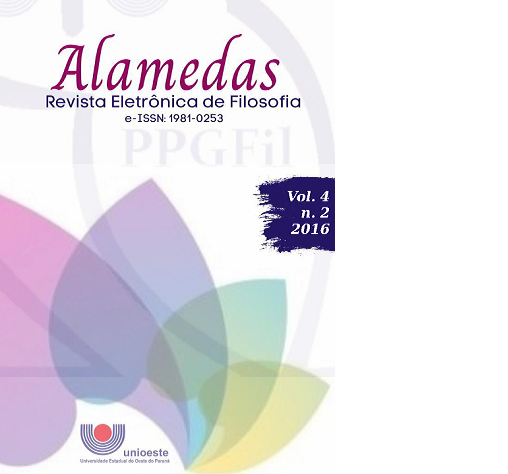LA VOLUNTAD GENERAL Y LA FUNCIÓN DEL LEGISLADOR EN ROUSSEAU
DOI:
https://doi.org/10.48075/ra.v4i2.15163Palabras clave:
vontade geral, legislador, rousseau, lei, soberania popularResumen
El autor de Ginebra en su ideal destinado a la construcción de la nueva política del hombre, lo que llevaría a una nueva política capaz de reemplazar los cimientos injustos en que se asienta la sociedad. Por todo este cambio requiere un nuevo pacto basado en la voluntad general, que a su vez no es simplemente la suma de voluntades individuales, uno por uno, pero sólo conserva la cumbre, que es la esencia de todas las voluntades unidas en solamente, cuyo mayor valor es la voluntad colectiva (moral colectiva). Así que hay una sociedad justa, la soberanía del pueblo es requerido por la voluntad general, sin poderosos y oprimidos, libres o esclavos. Todos los contratistas deben ser capaces de actuar, sobre todo, la igualdad y la libertad. Esta nueva sociedad es la que aún no se ha alcanzado. Ya no es posible, mantener la condición del estado natural. La desnaturalización gestado un nuevo hombre, que pasa a vivir con los demás, y esta nueva condición, va a sufrir cambios posibles prácticamente en su estado. Sobre la base de estos cambios es la necesidad primaria para crear un dispositivo, el "espíritu social," sentado en una condición existencial básica. ¿Qué condición es que? Es la condición humana, al mismo tiempo "integrado" (sujeto) y "integral" (ciudadano). Buscando asegurar la legitimidad de la vida social, Rousseau mantiene dos valores fundamentales: la libertad y la igualdad. Y usted cree que ha encontrado la fórmula para el hombre que se une, una condición que, en su opinión, le dan un poder soberano necesarias para salvaguardar estos valores.Descargas
Publicado
Cómo citar
Número
Sección
Licencia
Derechos de autor 2016 Alamedas

Esta obra está bajo una licencia internacional Creative Commons Atribución-NoComercial-CompartirIgual 4.0.
Aviso de Direito Autoral Creative Commons
Política para Periódicos de Acesso Livre
Autores que publicam nesta revista concordam com os seguintes termos:
1. Autores mantém os direitos autorais e concedem à revista o direito de primeira publicação, com o trabalho simultaneamente licenciado sob a Licença Creative Commons Attribution que permite o compartilhamento do trabalho com reconhecimento da autoria e publicação inicial nesta revista.2. Autores têm autorização para assumir contratos adicionais separadamente, para distribuição não-exclusiva da versão do trabalho publicada nesta revista (ex.: publicar em repositório institucional ou como capítulo de livro), com reconhecimento de autoria e publicação inicial nesta revista.
3. Autores têm permissão e são estimulados a publicar e distribuir seu trabalho online (ex.: em repositórios institucionais ou na sua página pessoal) a qualquer ponto antes ou durante o processo editorial, já que isso pode gerar alterações produtivas, bem como aumentar o impacto e a citação do trabalho publicado (Veja O Efeito do Acesso Livre).
Licença Creative Commons
Esta obra está licenciada com uma Licença Creative Commons Atribuição-NãoComercial-CompartilhaIgual 4.0 Internacional, o que permite compartilhar, copiar, distribuir, exibir, reproduzir, a totalidade ou partes desde que não tenha objetivo comercial e sejam citados os autores e a fonte.


